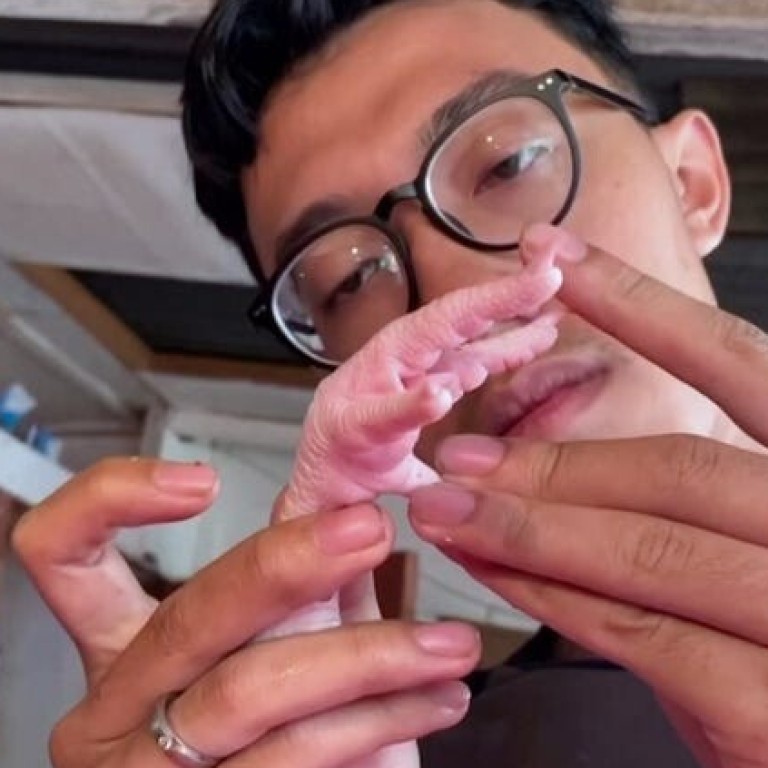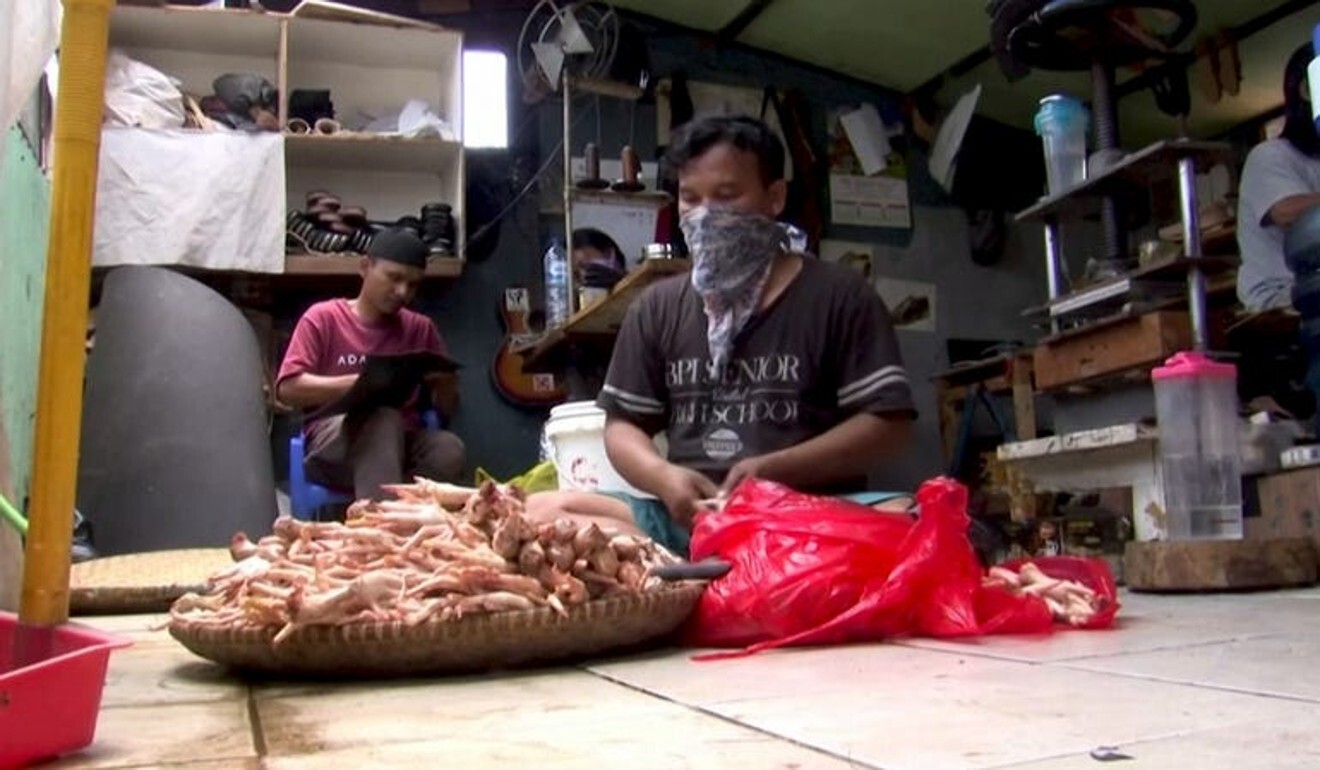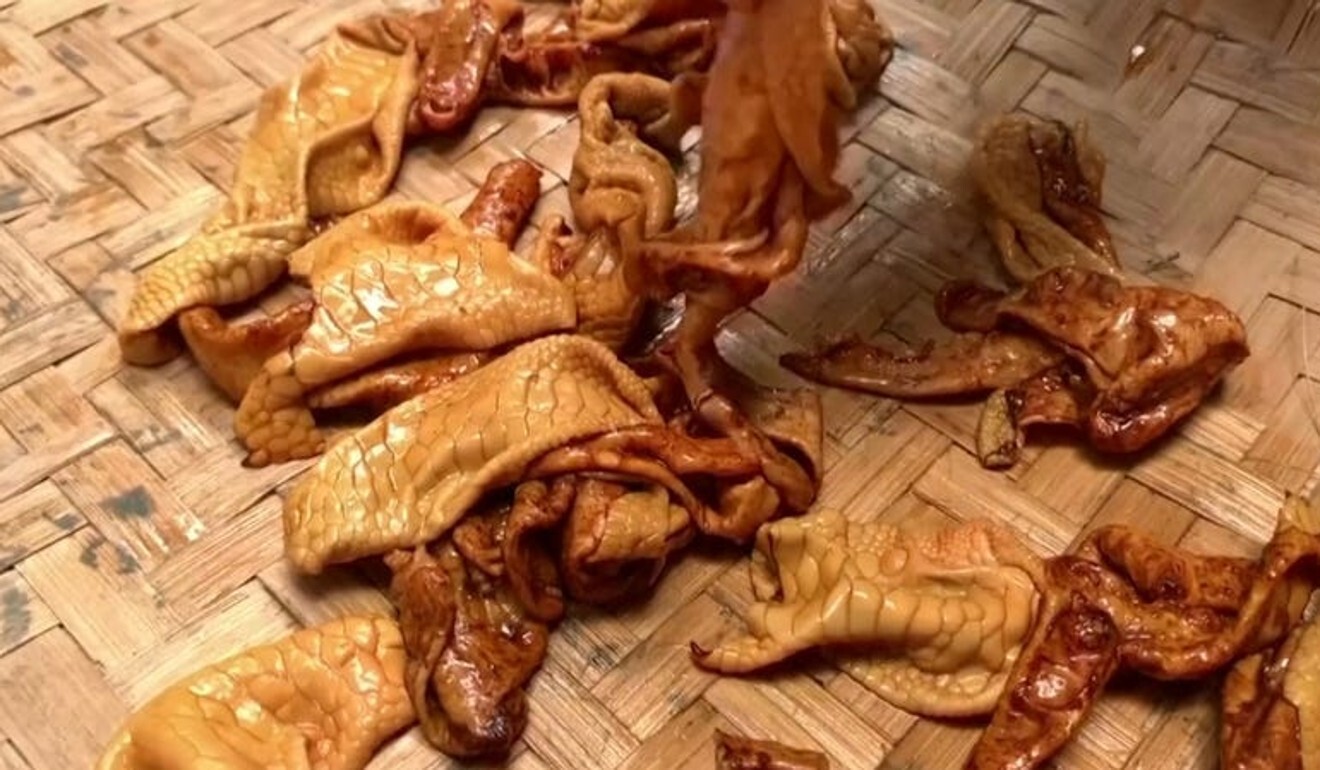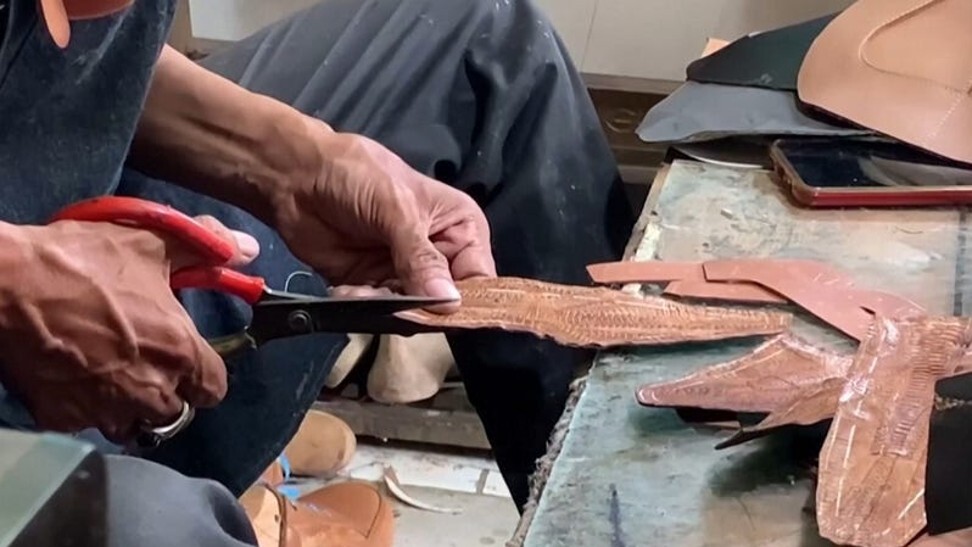
Leather shoes made from food waste – chicken feet – offer fashion lovers ethical alternative to reptile skin shoes
- Indonesian entrepreneur Nurman Farieka Ramdhany looked for an alternative to snakeskin and crocodile leather, and hit upon chicken feet
- His company, Hirka, turns restaurants’ leftover chicken feet into handmade leather shoes. ‘The waste is a lot ... we get more value from it,’ he says
An Indonesian entrepreneur is turning chicken feet and scraps into leather to make shoes. He markets his shoes as alternatives to ones made from reptile skin, which have long been controversial in the fashion industry.
Through his company, Hirka, Nurman employs six people, who make the shoes by hand. The chicken feet Hirka uses are leftovers from local restaurants. “The waste is a lot. That is why we try to process it to get more value from it,” Ramdhany said.



One customer told Reuters: “We always think of chicken feet being used to make food or chips, but this is used as material for shoes. It is curious, interesting and unique, too.”
Nurman hopes customers will see his company's value, which comes both from craftsmanship and from reducing pressure on exotic reptile species.

